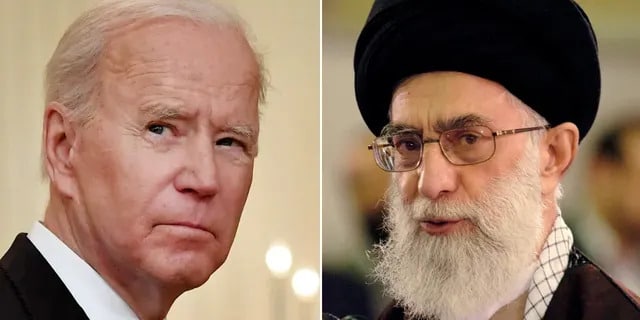Biden’s renewed focus on Iran has recently generated a flurry of headlines.
First came the news that Biden was deploying thousands of U.S. sailors and Marines to the Red Sea to counter increasing Iranian seizures of commercial vessels. Along with this, Biden has been considering placing U.S. troops on commercial vessels in the Persian Gulf, a move that several analysts believe risks inciting a greater series of escalations between the United States and Iran.
Then the New York Times reported that Iran and the United States were moving forward with a prisoner exchange deal, which will see Iran release several jailed American prisoners. In exchange, the United States will release several Iranian prisoners and allow Iran to access $6 billion in Iranian oil revenue that the United States had kept frozen as part of its sanctions regime. Soon after this news broke, the Wall Street Journal reported that Iran had slowed its buildup of uranium, leading to speculation that the United States and Iran might once again be pursuing an agreement like the JCPOA negotiated under Obama, which saw Iran limit its development of nuclear energy in exchange for sanctions relief.
What all this news indicates is that Biden understands that the Middle East is still relevant to U.S. imperialism, especially as Beijing vies for influence in the region. Going into the U.S. presidential election, Biden will seek to present himself as U.S. imperialism’s best bet. While he can point to his administration’s role in revitalizing NATO and U.S. imperialism in Europe through the proxy war with Russia in Ukraine, as well as his administration’s focus on confronting China, the Middle East looms as a weak point for Biden’s imperialist bona fides. Biden understands this, and knows that for the United States to reestablish its waning influence in the Middle East, he will have to contain Iran, especially given the latter’s growing alliance with China and its position in the bloc around it with Russia.
Battle for Hegemony in the Middle East
The crisis of weakening U.S. influence in the Middle East predates Biden’s presidency. Under Trump’s isolationist policies, the U.S. withdrew from the JCPOA and followed a policy of maximum sanctions that severely eroded the United States’ ability to position itself as a diplomatic broker around the globe in general, and with Iran in particular.
Biden began his foreign policy with the chaotic withdrawal from Afghanistan. Though Afghanistan itself is not in the Middle East, the U.S. invasion and 20-year occupation played a central role in the United States’ larger Middle East strategy, and the withdrawal was a humiliating political and military defeat of the United States, full of larger geopolitical implications. One of these implications was that China would take advantage of the power vacuum in the Middle East.
The most stark example of China’s advance in the Middle East in the context of waning U.S. influence was the Saudi-Iran peace deal. China’s brokering of this deal between the two historic regional rivals gave the rising power international clout, which it has used to position itself as a potential peacemaker in other pressing geopolitical matters, most notably the war in Ukraine. The deal was especially humiliating to the United States, which under Biden had been losing control over Saudi Arabia, a key ally for U.S. imperialism in the Middle East. Saudi Arabia is now also a partial member of China’s Shanghai Cooperation Organization, and it was China’s top supplier of crude in 2022.
Meanwhile, Iran has been vital to China’s advance in the Middle East. Along with making the deal that gave China international diplomatic weight, Iran has been a close economic partner of China. Under the isolation of U.S.-imposed “maximum pressure sanctions,” Iran has moved closer to China, becoming largely dependent on Chinese trade. In 2022, China imported a record amount of Iranian crude oil. In 2021, Iran and China signed a 25-year economic agreement that will see China invest in a wide range of industries, including nuclear energy; infrastructure, such as railroads and ports; and oil and gas.
Can Biden Contain Iran?
Iran’s closer relationship with China is clearly of concern to the United States. It is, however, largely a product of U.S. policies toward Iran. The most pressing concern of the Iranian regime is to escape the U.S. sanctions, which have crushed the country’s economy. China has provided some relief for Iran, but the relationship is hardly ideal for Iran. Without many alternative allies, Iran’s relationship with China becomes one of lopsided dependence. And while U.S. influence has declined in the Middle East, the U.S. still remains by far the world’s strongest imperialist power, still exerting significant influence in the region both with its military presence and its economic influence, which stifles and isolates Iran from the world market, with particularly dire consequences for the Iranian masses.
The stakes are even higher than usual for Iran’s regime as a product of the country’s feminist uprising last year. While the regime forced some of this resistance into retreat with severe repression, it has been unable to overcome the crisis, and the regime is still unstable.
It’s no wonder, then, that the regime is negotiating again with the United States to find an exit through some of the structural tensions in Iran’s economy. Of course, the regime will not want to look weak. Past negotiations with the United States fell apart when the United States refused to provide any sanctions relief unless Iran made concessions first. Iran knows it will have to negotiate from a stronger position. This is why the country has been interfering with commercial vessels in the Gulf. These disruptions are one of the limited ways that the regime can go into negotiations with some leverage over the United States.
Already, Biden faces a challenge to form consensus around his Iran policies. News of negotiations with Iran was met with significant pushback from important sectors of the Republican Party, as well as Israel. Biden’s troop deployments to the Middle East signal to Congress and U.S. allies that the negotiations do not negate his willingness to strong-arm Iran as needed, but clearly Biden’s critics remain unconvinced. The more Biden is pressured to strong-arm Iran, the more volatile the region may get. U.S. troop deployments, and especially a potential policy of U.S. troops on commercial vessels, increases the risk of accidents, which further raise tensions.
While both sides want to appear strong in negotiations, a serious escalation will likely be a costly affair for both. For one, Iran has been unable to counteract the effect of sanctions, despite building alliances with China and Russia. For China, too, the goal is to stabilize the economy and conquer a space in the global order rather than risk war, which is a tricky business, especially when its global poles are weaker.
For an Anti-imperialist Opposition to Biden’s Iran Policy
Whatever Biden does, it will be motivated by his need to position himself as U.S. imperialism’s best bet. Even under the prisoner exchange deal, which provides some sanctions relief to Iran, the United States is maintaining its subordination of Iran. The U.S. will give Iran $6 billion in Iran’s own oil revenue. Qatar — a close ally of the United States — will manage the transfer of funds to Iran, meaning that Iran’s access to its own revenue is still subordinated to the United States.
These sanctions most directly harm the Iranian working class and oppressed communities, including the very women who confronted the regime. Without supporting the Iranian regime, workers and socialists in the United States must oppose Biden’s economic warfare on Iran.
We must also have no illusions in the diplomacy among capitalist states to weaken U.S. imperialism’s hold over Iran. While some on the Left suggest that a more diplomatic U.S.-Iran relationship is a lesser evil compared to the aggressive moves pursued by Trump, these policies still keep the Iranian people at the mercy of the United States. Even as he pursues negotiations, Biden is showing that he will use military threats toward Iran as needed. Nor will liberation for the Iranian people come from rival capitalist powers like China and Russia, which trade with Iran for their own economic interests, not in the interest of the Iranian working class.
Anti-imperialist solidarity from the United States with Iran needs to be firmly rooted in international class solidarity between U.S. workers and Iranian workers. To raise this class solidarity in the United States, anti-imperialists need a working-class party committed to socialist internationalism. Until then, the shifts in U.S. relations toward Iran or any country are nothing more than imperialists arguing over which capitalist party can best oppress the working class throughout the world.











